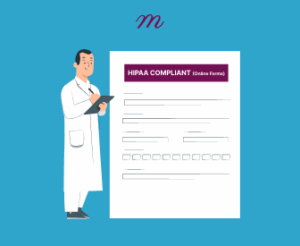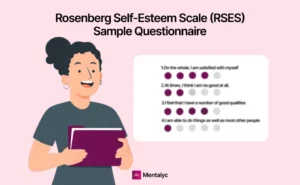Psychoeducational evaluation allows clinicians to identify and address various learning difficulties and developmental challenges. This article will explore the elements of psychoeducational assessment, including its components, who performs it, the types of assessments, an example of a psychoeducational evaluation, and a discussion of its relevance for both adults and children.
But before that let's see what actually is Psychoeducation:
Psychoeducation
Psychoeducation is a therapeutic intervention that combines psychological and educational techniques to provide information and support to individuals and their families about mental health conditions. It aims to increase understanding of mental health issues, enhance coping strategies, and empower individuals to manage their conditions effectively. Psychoeducation can be conducted in different formats, and the most common format is the psychoeducational group, which is a specific format where this education is delivered in a group setting. In such groups, members share experiences, learn from each other, and receive guidance from mental health professionals. This group setting fosters a supportive community, encouraging open discussion and shared learning, enhancing the psychoeducational experience.
What is a Psychoeducational Evaluation?
A psychoeducational evaluation is a comprehensive assessment process designed to identify cognitive, emotional, and behavioral factors that may impact an individual's learning abilities and educational performance. It’s conducted by trained professionals to gain an understanding of an individual's strengths and weaknesses, enabling tailored interventions and support.
Components of a Psychoeducational Evaluation
A typical psychoeducational evaluation includes the following:
Clinical Interviews. The process usually begins with a clinical interview. The evaluator gathers information about the individual's developmental history, educational background, medical history, and any concerns or challenges.
Standardized Testing. Tests are administered to assess cognitive abilities, including intelligence, memory, attention, and language skills. Common assessments include the Wechsler Intelligence Scale for Children (WISC) or the Wechsler Adult Intelligence Scale (WAIS).
Academic Assessment. An individual's current academic performance is evaluated, including reading, writing, math, and other relevant skills to identify any learning difficulties.
Behavioral and Emotional Assessment. Emotional and behavioral factors that may affect learning are considered. Tools like the Behavior Assessment System for Children (BASC) help in understanding emotional and behavioral challenges.
Observations. The evaluator observes the individual in various settings, such as the classroom or home – providing valuable insights into their behavior and interactions with peers, family members, teachers, and others.
Parent and Teacher Questionnaires. Parents, caregivers, guardians, teachers, and others complete questionnaires to offer information about the individual's behavior and functioning.
Records Review. Evaluators may review academic records, medical reports, and previous assessments to gain a comprehensive understanding of the individual's history.
Who Performs Psychoeducational Evaluations?
Psychoeducational evaluations are usually conducted by licensed and certified professionals, including:
Clinical Psychologists are well-equipped to conduct psychoeducational assessments.
School Psychologists work within academic settings and focus on assessing educational needs and providing support within the school system.
Neuropsychologists have expertise in understanding the relationship between brain function and behavior, making them valuable in assessing learning disabilities and neurological issues.
Educational Diagnosticians specialize in identifying learning disabilities and recommending appropriate interventions.
Where to get psychoeducational evaluation?
Individuals have several options to get a psychoeducational evaluation:
Many schools offer psychoeducational evaluations as part of their special education services. Parents or guardians can request an evaluation if they suspect their child has learning difficulties.
Independent psychologists, neuropsychologists, and educational diagnosticians offer psychoeducational evaluations, allowing for more flexibility in choosing an evaluator.
Clinics and medical facilities provide psychoeducational evaluations for both children and adults.
Nonprofit Organizations may offer reduced-cost or sliding-scale fee evaluations for individuals with limited financial resources.
Psychoeducational Assessment Tools
Psychoeducational assessments rely on standardized tools and tests that are carefully selected to evaluate different aspects of an individual's cognitive, behavioral, emotional, and academic functioning. Common assessment tools include:
Wechsler Intelligence Scale for Children (WISC) – used for assessing the cognitive abilities of children and adolescents.
Wechsler Adult Intelligence Scale (WAIS) – designed for adults aged 16 to 90.
Woodcock-Johnson Tests of Achievement – assess academic skills and are widely used to identify learning disabilities.
Conners' Rating Scales – assesses attention-deficit/hyperactivity disorder (ADHD) and related behavioral issues.
Behavior Assessment System for Children (BASC) – used to evaluate emotional and behavioral issues in children and adolescents.
Vineland Adaptive Behavior Scales – focused adaptive behavior and daily living skills in individuals with developmental disorders.
Beck Depression Inventory (BDI) and Beck Anxiety Inventory (BAI) – assess mood and anxiety disorders in adults.
NEPSY-II – a neuropsychological assessment tool for children that measures cognitive functioning.
Types of Psychoeducational Assessments
Psychoeducational assessments serve different purposes based on individual needs.
Learning Disability Assessments focus on identifying specific learning disabilities such as dyslexia, dyscalculia, or ADHD.
Intellectual and Cognitive Assessments evaluate cognitive abilities to provide insights into an individual's intellectual functioning, memory, and problem-solving skills.
Emotional and Behavioral Assessments help diagnose and understand emotional conditions such as mood disorders, anxiety, or behavioral issues.
Academic Achievement Assessments evaluate academic skills to identify gaps in learning and guide educational interventions.
Psychoeducational Evaluation for Adults
While psychoeducational evaluations are commonly associated with children and teens, they are equally valuable for adults. Assessments can help identify learning difficulties, cognitive impairments, emotional issues, and other factors that may impact an adult's educational or vocational pursuits. Here are some common reasons for adult psychoeducational evaluations:
Adults may seek evaluation for suspected learning disabilities that have persisted from childhood or have been newly identified.
Adults who face difficulties in their careers or academic pursuits may undergo evaluations to pinpoint the underlying issues.
Some adults require psychoeducational assessments to request accommodations in educational or workplace settings, such as extended test-taking time or assistive technology.
Adults with disabilities or cognitive impairments may undergo evaluations to access vocational rehabilitation services and job training programs.
Individuals interested in personal growth or pursuing further education may seek assessments to identify areas of strength and areas that need improvement.
The components of an adult psychoeducational evaluation are like those for children, with some adaptations. An in-depth interview is conducted to gather the adult's personal and educational history, relevant medical conditions, and specific concerns or goals. Cognitive assessments such as the WAIS (Wechsler Adult Intelligence Scale) are administered to evaluate intellectual functioning. Additional tests may assess memory, attention, and other cognitive domains. If applicable, academic assessments are conducted to evaluate reading, writing, math, or other skills that may be relevant to the individual's goals. Assessment tools like the Beck Depression Inventory (BDI) or the Beck Anxiety Inventory (BAI) may be used to evaluate emotional well-being. Observations in real-life settings, such as the workplace or educational environment, may provide valuable insights into an adult's functioning and behavior. Relevant documents, such as prior academic records, medical reports, or previous evaluations, are reviewed to understand the individual's history.
The psychoeducational evaluation report for adults typically includes:
a summary of the individual's background and presenting concerns.
details of the assessment process, including tests administered and observations made.
assessment results, including cognitive, academic, emotional, and behavioral findings.
diagnostic impressions, such as identifying learning disabilities or mental health conditions.
recommendations for interventions, accommodations, or treatments based on the assessment findings.
requested accommodations for educational or workplace settings.
Psychoeducational Evaluation for Children
Child psychoeducational evaluations are essential for identifying learning difficulties, developmental delays, and emotional or behavioral challenges. These evaluations can inform early intervention strategies and educational planning. Here are the common reasons for a child psychoeducational evaluation:
Parents and educators may seek evaluations if a child struggles with reading, math, writing, or other academic skills.
Children with developmental delays, speech and language disorders, neurological conditions, or autism spectrum disorders may undergo assessments to guide intervention and therapy.
Children with behavioral issues, ADHD, anxiety, or depression may require evaluations to better understand their needs.
The evaluation process is often a prerequisite for determining eligibility for special education services.
Some children may need accommodations in school, such as individualized education plans (IEPs) or 504 plans.
The components of a child's psychoeducational evaluation may vary depending on the child's age and specific concerns. Parents and teachers will complete questionnaires or provide information about the child's behavior and functioning. Cognitive assessments (e.g., WISC) and academic assessments (e.g., Woodcock-Johnson Tests of Achievement) are administered to evaluate cognitive abilities and academic skills. The evaluator may observe the child in various settings, such as the classroom, to assess behavior and interactions. Tools like the BASC (Behavior Assessment System for Children) may be used to assess emotional and behavioral aspects. For younger children, developmental assessments may be conducted to evaluate speech and language development, motor skills, and social-emotional development. Existing school records, including report cards and previous evaluations, are reviewed to gain insights into the child's history.
The psychoeducational evaluation report for children typically includes:
a comprehensive overview of the child's background, developmental history, and presenting concerns.
details of the assessment process, including tests administered, observations, and input from parents and teachers.
assessment results, including cognitive, academic, emotional, and behavioral findings.
diagnostic impressions, such as identifying learning disabilities or mental health conditions.
recommendations for educational interventions, therapies, accommodations, or special education services.
Psychoeducational Report Template
Psychoeducational report templates serve as structured formats for organizing assessment findings and recommendations. Templates are essential for maintaining consistency and clarity in reporting. While specific templates may vary among clinicians, this is a general outline of the sections commonly found in a psychoeducational report:
Introduction
brief overview of the purpose of the evaluation
individual's background and relevant history
Assessment Methods
details of the assessment tools and tests administered
Assessment Results
cognitive assessment results, including intellectual functioning and specific cognitive domains
academic assessment results, highlighting strengths and weaknesses in academic skills
emotional and behavioral assessment findings
observational data and input from parents, teachers, or other relevant sources
Diagnostic Impressions
diagnosed learning disabilities, emotional disorders, mental health conditions, developmental delays, or other relevant conditions
Recommendations
educational recommendations, including interventions, accommodations, or specialized educational services
therapeutic recommendations, such as counseling or behavioral interventions
recommended medical or psychiatric evaluations or treatments
suggestions for further assessment or follow-up
Conclusion
summary of the key findings and recommendations
impact of the evaluation on educational or vocational planning
Signature and Credentials
signature of the evaluator, along with their professional credentials and contact information.
Note that psychoeducational report templates may vary in format and structure, but they typically adhere to the above core sections to ensure that assessment findings are presented clearly and comprehensively. Reports should be tailored to the individual's unique needs and circumstances.
Psychoeducational Evaluation Example
Here is an example of a psychoeducational evaluation.
A 12-year-old child named Amy is struggling in school. She has difficulty reading and frequently becomes frustrated during math lessons. Her teachers note recent behavioral changes, including withdrawal from social interactions, along with consistently falling grades.
Evaluation Process
1. Clinical Interview – The evaluator meets with Amy's parents to gather information about her developmental history, medical conditions, and academic struggles. 2. 3. Standardized Testing – Amy undergoes the Wechsler Intelligence Scale for Children (WISC) to assess her cognitive abilities. The results show that her overall cognitive abilities are within the average range. 4. 5. Academic Assessment – Amy’s reading and math skills are assessed using standardized tests. The results indicate that she is significantly below grade level in both areas. 6. 7. Behavioral and Emotional Assessment – Amy’s parents and teachers complete the Conners' Rating Scales. The results show elevated scores for inattention and emotional instability. 8. 9. Observations – The evaluator observes Amy in the classroom and notices her frustration during reading and math lessons. 10. 11. Record Review – School records indicate a history of academic struggles and previous attempts to address Amy’s difficulties. 12.
Findings and Recommendations
Based on the evaluation, it is determined that Amy has specific learning difficulties in reading and math, likely indicative of dyslexia and dyscalculia. Additionally, she displays symptoms consistent with attention-deficit/hyperactivity disorder (ADHD). The evaluator recommends a personalized education plan with specialized interventions for reading and math, as well as a consultation with a child psychologist for further assessment and potential ADHD treatment.
Conclusion:
Psychoeducational evaluations are invaluable tools that have far-reaching implications for individuals of all ages. These assessments are a critical gateway to understanding and addressing learning difficulties, developmental challenges, and emotional or behavioral issues. When conducted by qualified professionals, these evaluations go beyond mere diagnosis because they serve as the compass that guides interventions and accommodations. With the guidance of well-written evaluations, clinicians can formulate personalized educational or vocational plans.
For children, psychoeducational evaluations pinpoint specific learning difficulties, such as dyslexia or attention deficit hyperactivity disorder (ADHD). These assessments pave the way for tailored educational strategies, helping educators and parents to create a supportive and inclusive environment that nurtures a child's unique strengths – all while addressing their challenges and obstacles for growth. Early identification and intervention can mitigate the impact of learning difficulties and set a child on a trajectory toward academic success and personal growth.
For adults, psychoeducational evaluations shed light on long-standing challenges or newly emerging issues, providing a roadmap for individuals to effectively navigate their personal and professional lives. For adults returning to school or seeking career changes, these assessments can determine the most suitable academic or vocational path, ensuring that they make informed choices aligned with their strengths and areas for growth.
For children and adults, psychoeducational evaluations offer a holistic perspective that considers emotional and behavioral well-being alongside cognitive functioning. By identifying underlying emotional or behavioral issues, professionals can develop interventions that not only address symptoms but also promote overall mental health and resilience. This approach supports individuals in overcoming obstacles, fostering self-awareness, and facilitating personal growth.
Psychoeducational evaluations play a multifaceted role in enhancing the lives of both children and adults. They are not mere diagnostic tools but rather powerful instruments that empower individuals to unlock their full potential. By providing a comprehensive understanding of an individual's strengths and challenges, these evaluations enable the creation of interventions, accommodations, and treatment plans that nurture growth, foster development, and pave the way for a brighter future. In a world where each person's journey is unique, psychoeducational evaluations stand as essential guides to ensure that no potential goes untapped and that every individual can flourish.
Why other mental health professionals love Mentalyc

“I go back and can read the notes, and it really helps me for the next session … it has made me a much better counselor.”
Licensed Professional Counselor

“It helps align the note and the plan for moving forward with sessions … it’s been a really good aid in giving me direction.”
LPC

“It improves the quality of my work as I review my sessions … I bring a sense of continuity from session to session because of the really good summary and progress notes that Mentalyc gives me.”
Licensed Marriage and Family Therapist

“I benefit tremendously every time I wrap up a session and then a few minutes later, I have this AI note … it makes me a better clinician in a variety of ways.”
LPC






